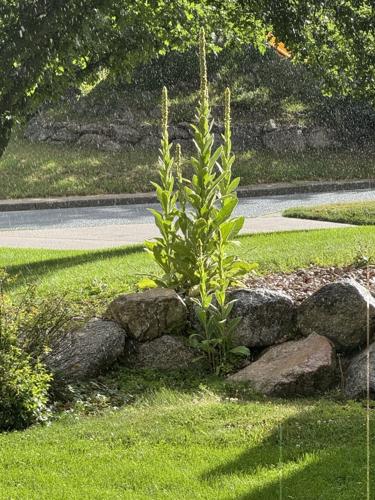Year-round gardening: Common mullein getting way too common in Colorado
$(window).load(function() {
window.setTimeout(affixShare, 2000);
function affixShare() {
var sHeight = $(‘#share-left-affix’).outerHeight(true);
var cHeight = $(‘#share-left-affix’).parent().outerHeight(true);
var sTop = $(‘#share-left-affix’).offset().top – 100;
var sBottom = $(document).height() – ($(‘#share-left-affix’).parent().offset().top + cHeight – 100);
if(cHeight > sHeight) {
$(‘#share-left-affix’).affix({
offset: { top: sTop, bottom: sBottom }
});
}
}
});
$(window).resize(function() {
var sHeight = $(‘#share-left-affix’).outerHeight(true);
var cHeight = $(‘#share-left-affix’).parent().outerHeight(true);
var sTop = $(‘#share-left-affix’).offset().top – 100;
var sBottom = $(document).height() – ($(‘#share-left-affix’).parent().offset().top + $(‘#share-left-affix’).parent().outerHeight(true) – 100);
if(cHeight > sHeight) {
$(‘#share-left-affix’).data(‘bs.affix’).options.offset.top = sTop;
$(‘#share-left-affix’).data(‘bs.affix’).options.offset.bottom = sBottom;
}
});
Recently, common mullein (Verbascum thapsus) seems to be ubiquitous: on roadsides, abandoned lots and even popping up in manicured landscapes.
I get why gardeners might find it attractive; with fuzzy leaves and a tall spike of yellow flowers, it almost appears regal. But there is another side to this plant that can wreak havoc on a garden.
Each plant, if allowed to go to seed, can produce 100,000 to 250,000 seeds per year. These seeds can remain viable in the soil for up to a century. This is a reproductive behemoth.
The Colorado Department of Agriculture classifies it as a list C noxious weed. It is considered noxious because of its invasive nature. List C noxious weeds do not require eradication, but control is strongly recommended. Generally these are weeds so well established that eradication is not realizable, but control, especially for the home gardener, is possible.
For a complete discussion of this weed, the Colorado Department of Agriculture Common Mullein Fact Sheet is readily available on the agency’s website. It includes a breakdown of several control methods.
To be considered noxious, a plant must be non-native and present a problem to either the environment or agriculture. The issues for common mullein are:
• It can outcompete native plants and quickly take over native habitat.
• In large, dense stands, it can increase fire risk.
• Cattle avoid eating the plant, and in pastures, it can reduce the available forage for cattle
For home gardeners, this is not a welcome newcomer because it can quickly become a garden thug.
Cultural control is fairly easy and effective in small gardens. The goal is to remove the plants and thereby effectively limit seed production. Common mullein is a biennial plant.
That means the plant lives for two years; the first year it is a seedling. They come up as basal (low-growing) rosette. The leaves are light green and covered in soft hairs. Because they are seedlings, they generally are quite easy to weed out. Just dig or pull them out.
In spring of the second year, the plant bolts an erect stem that grows up to 6 feet tall. The flowers of the plant are borne in terminal spikes. These terminal spikes may reach up to 20 inches in length.
The flowers are sulfur-yellow in color and have five petals. The flowers range from 3/4 of an inch to 1 1/2 inches in diameter. If you remove the blooms by cutting the plant back, you can short circuit its seed production.
Cut the plant back to the ground before the flowers open. Monitor the area for new growth, and continue to cut any new growth back for the entire growing season.
While there are biological and chemical controls available for small outbreaks in home gardens, cultural control is fairly simple and can be quite effective.
Submit gardening questions to csumg2@elpasoco.com or call 719-520-7684. The in-person help desk is open 9 a.m.-noon and 1-4 p.m. Mondays, Wednesdays and Thursdays. Visit elpaso.extension.colostate.edu and register for upcoming classes at epcextension.eventbrite.com.
Submit gardening questions to csumg2@elpasoco.com or call 719-520-7684. The in-person help desk is open 9 a.m.-noon and 1-4 p.m. Mondays, Wednesdays and Thursdays. Visit elpaso.extension.colostate.edu and register for upcoming classes at epcextension.eventbrite.com.





